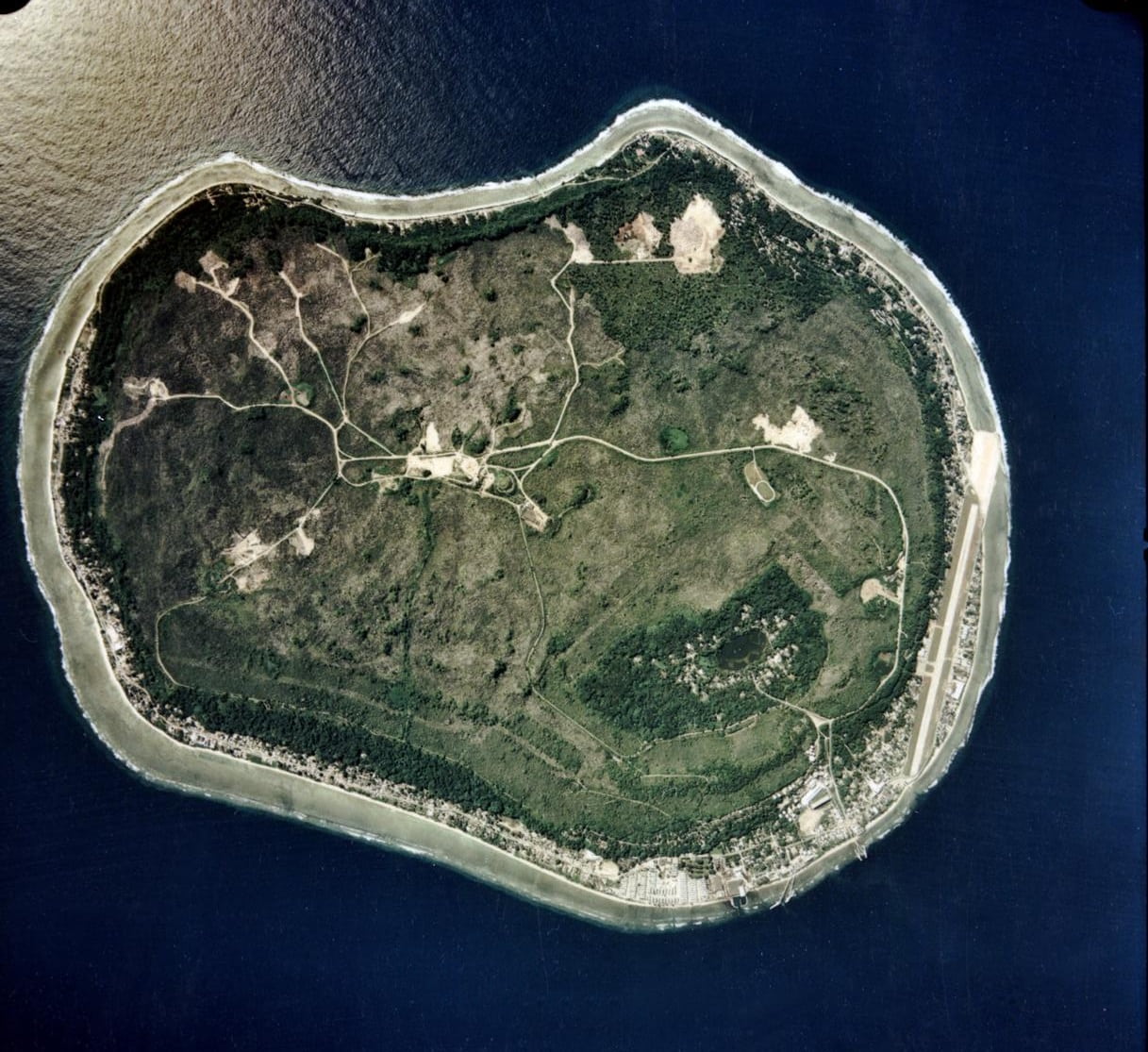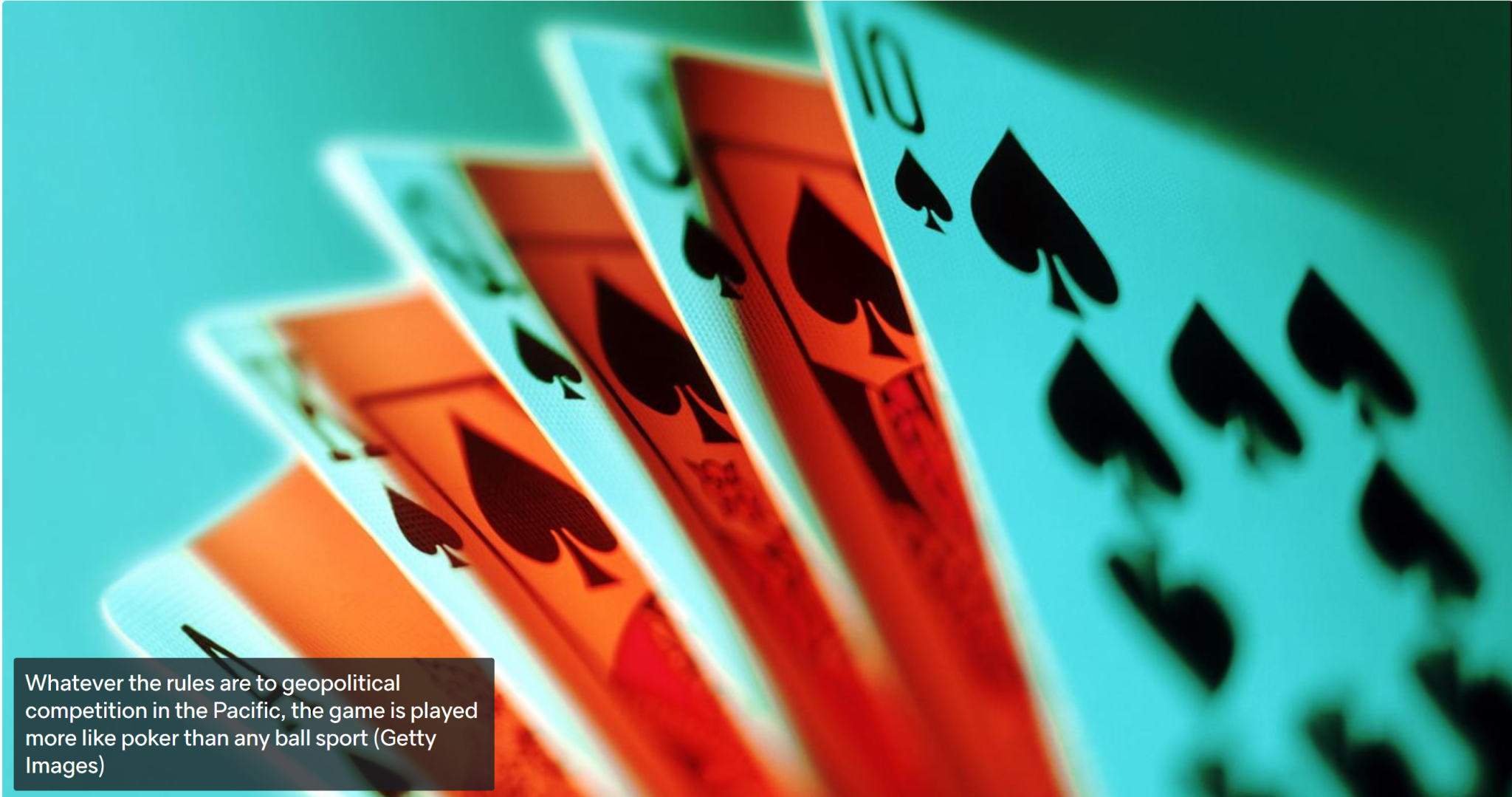Nauru’s decision to switch diplomatic recognition from Taiwan to China has nothing to do with Australia. It reflects the intense geopolitical competition in the Pacific and the sustained, but not always visible, push from China to erode diplomatic support for Taiwan and further isolate the country.
With the switch, China has strengthened its position in the region. There are now only three Pacific countries that still recognise Taiwan (Tuvalu, Marshall Islands and Palau). Nauru’s switch is part of a global trend where national governments judge that their interests – mostly economic ones – are best served by recognition of China.
Nauru would have shuttled between Taiwanese and Chinese representatives, seeking to raise the bid as high as possible.
Many have speculated why Nauru shifted allegiances again, as it did between 2002 and 2005. Without a doubt there were sweeteners. That’s politics. The timing of Nauru’s switch appears deliberately designed to take the wind out of Taiwan’s sails after the pro-sovereignty presidential election result. This is China signalling that its diplomatic capacity outstrips Taiwan’s and that its influence in the Pacific is growing.
But in the end, it all comes down to economics and gaps in development funding. Nauru would have shuttled between Taiwanese and Chinese representatives, seeking to raise the bid as high as possible. China clearly had the best deal on the table. Details are murky, but allegedly it amounts to about AU$125 million over several years.
Did Australia drop the ball?
There is no ball. Whatever the rules are to geopolitical competition, the game is played more like poker than any ball sport. Nauru is an independent country. Yes, it receives most of its aid from Australia – in 2023–24, that amounted to about $46 million. But it’s been demonstrated time and again that development cooperation is not an effective insulator against geopolitical chicanery. Just look at Solomon Islands.
Australia is in no position to criticise Nauru’s biddability, when it was this very quality that made the tiny island nation a suitable candidate to host one of Australia’s Regional Processing Centres (RPC) in 2001.

At its peak, the RPC housed more than 1200 people, or ten per cent of Nauru’s population. The Nauru government profited handsomely from hosting Australia’s asylum seekers. By 2019, government revenues had increased by about 58 per cent. But a number of problems also arose, including restrictions on media freedom and access, political prosecutions, interference in the judicial sector, and wasteful spending.
Nauru does not have a good record of financial prudence. In the 1970s, it grew rich on phosphate revenues, rising to be one of the richest countries in the world on a per capita basis. But those riches were squandered. There has been some recovery, but Nauru is facing economic headwinds, especially after the temporary closure of the RPC.
Regional consequences
It’s unrealistic to try to eliminate the possibility of diplomatic switches in the Pacific. And it’s not so much diplomatic ties with China that concern Western countries – they themselves all have ties with China – it’s when China pushes into the security space in the Pacific that alarm bells go off.
For now, maintaining regional unity, despite divergence on issues such as Taiwan’s status, is a priority for PIF member states.
China’s past efforts to rearrange the regional security order were in part stymied by the fact that some Pacific countries have ties with Taiwan and not China. As Taiwan’s Pacific allies dwindle, so too does the reach of China’s regional diplomacy grow. This doesn’t mean China will always get what it wants, particularly on sensitive security matters. But it would sure make China’s life easier if there were no pesky Taiwanese representatives at the annual Pacific Islands Forum (PIF) meetings.
For now, maintaining regional unity, despite divergence on issues such as Taiwan’s status, is a priority for PIF member states. Most Pacific countries will want to ensure that the Biketawa Declaration setting out a “Pacific Family First” approach to security is not breached. Beyond this, every country’s bilateral relations are their own business.
Increasing stakes
The three remaining supporters of Taiwan will feel more isolated. Marshall Islands and Palau are United States’ Compact States that have record support packages on the way, in exchange for granting exclusive strategic access to the United States.
Tuvalu has a sweetheart deal with Australia on the table. Nervousness about a switch may give it more leverage to improve the deal after elections on 26 January, when negotiations on what has been called the Falepili Union inevitably are re-opened by the new government. Political pushback on the security component of the agreement is likely. Tuvalu may well look at the recent Papua New Guinea deal and push for similar latitude on external relations, downgrading its commitment to Australia from a virtual veto on security arrangements to a “we promise to keep you in the loop”.
Australia will be anxious to safeguard its strategic interests in Nauru. It will seek to ensure that new relationships do not further undermine governance or economic integrity. There are concerns in the region about debt distress and burdensome loan repayments to China.
Nauru’s greatest asset is its people, followed by its resources: fish and minerals. Opening opportunities for education, health services, labour mobility, and a migration pathway similar to what’s on offer to Tuvalu, would be the best way to draw Australia and Nauru closer and make a long-term and sustainable difference. What’s certain is that the stakes are increasing in the Pacific, and Australia will have to lay out more to stay in the game, because this is not a table from which it can walk away.


